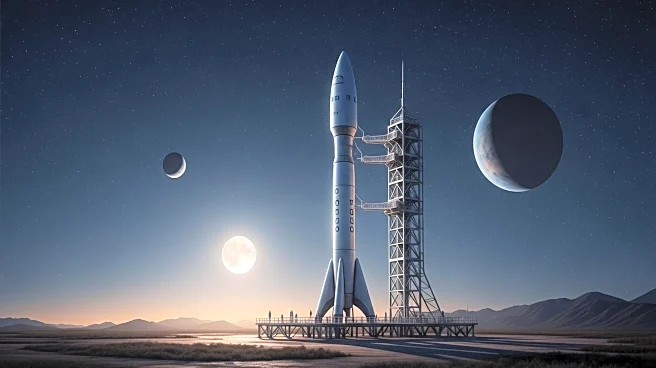What's Happening?
The fascination with Mars has a long history, dating back to the late 19th century when wealthy individuals funded astronomical endeavors to explore the possibility of life on Mars. The article highlights the parallels between past and present obsessions with the Red Planet, including the efforts of Nikola Tesla, who believed he detected signals from Mars and sought funding to prove it. The story also touches on the impact of Percival Lowell's theories about Martian canals, which captured the public imagination despite skepticism from the scientific community.
Why It's Important?
The historical obsession with Mars has influenced modern space exploration and the private space race. The legacy of early astronomical theories and public fascination with Mars has inspired generations of scientists and entrepreneurs, including figures like Elon Musk. This ongoing interest in Mars continues to drive technological advancements and investment in space exploration, potentially leading to significant scientific discoveries and commercial opportunities.
What's Next?
The continued interest in Mars is likely to fuel further investment in space exploration technologies and missions. As private companies and governments pursue Mars exploration, new scientific findings and technological innovations are expected. The narrative of Mars as a potential site for human settlement or resource extraction may evolve, influencing future space policies and international collaborations.
Beyond the Headlines
The cultural impact of Mars mania extends beyond scientific exploration, influencing literature, media, and public perceptions of space. The fascination with extraterrestrial life and the possibility of human colonization of other planets reflects broader societal themes of exploration and technological progress.








